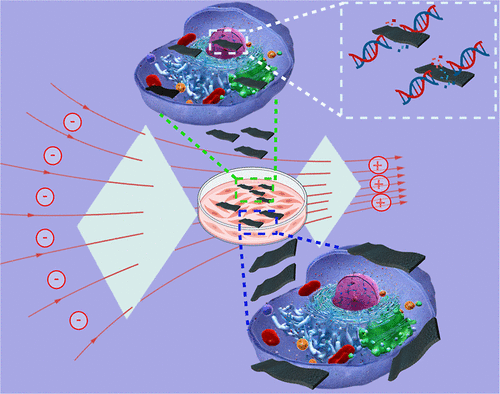Congratulations to all collaborators on this significant publication! MXenes, one of the most versatile families of two-dimensional materials, have shown remarkable promise across diverse applications, including biomedicine.
They are being actively investigated for roles in drug delivery, biosensing, tissue engineering, imaging, photothermal therapy, dialysis, and antibacterial coatings.
Despite their recognized biocompatibility and low cytotoxicity, their potential genotoxic effects remain poorly understood.
In this study, Ti₃C₂Tₓ and Nb₄C₃Tₓ MXenes were evaluated using a DNA comet assay to assess chromosomal integrity in mammalian cells.
The results revealed comet formation, indicating genotoxic responses in murine melanoma and human fibroblast cells, without associated cytotoxicity.
The effect was strongly dependent on flake size: submicron flakes induced DNA fragmentation, whereas larger flakes did not.
Notably, no DNA damage was detected in non-viable cells, extracted DNA, or purified DNA samples, and intact MXene-loaded cells showed no cleavage in the absence of an applied field.
These findings suggest that submicron MXene flakes can physically interact with DNA during electrophoresis due to their sharp, blade-like morphology, while outside such conditions, both titanium- and niobium-based carbides exhibit excellent biocompatibility.
This work highlights important considerations for the safe biomedical application of MXenes and suggests opportunities for their use in targeted cancer therapies.
